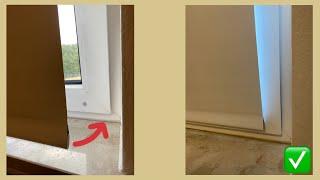Комментарии:

Thankhs!
Ответить
Amazing...and archaeologist these days should stop seeing things as symbolism and more on the utilization of ancient stuff....
Ответить
interesting vid, i have never seen an explanation for those basins before. thanks for creating
Ответить
Great! I would only question the bases. They are alabaster. Alabaster is a soft stone and could not take much stress.
Ответить
very nice work
Ответить
Interesting.
Ответить
The four disk were magnets that would create a magnetic Vortex that could be tapped at it's main power point at the bottom, to channel the energy to the project.
Not power like we think of.. life force power.. the type that can repel graviy if chaneled to do so.

Genius!
Ответить
This is genius! Could the bowls be molds for making a copper bushing used with this device?
Ответить
beautiful
Ответить
Pseudo science!
Ответить
That was not the function.
Ответить
this could also be used in shipping have you seen similar images in that area
Ответить
In my personal opinion that wasn't the use of the Djed in ancient Egypt. But what you did it's a really interesting tool.
Ответить
uneven weight distribution would snap the djed right under the "pulleys".. or it would just pull the whole top heavy design apart.
it would lose all integrity under real stone weight

minus them pulling...physically that is...
Ответить
Nice idea. Still i think the Djed represented aligned stars representing the mount with anubis on top. Nevertheless there must have been machining to explain the thin cuts.
Ответить
Djddn
Ответить
I don't think they painted and worshiped a tool like that. This is not a profane tool.
Ответить
lol... these comments. The Djed was used in accordance with the 'law of three'... or `triangulated law'... which all working tools must and did serve three different purposes... and the Djed fulfilled three purposes... physical (movement, engineering, etc.), spiritual/magical (electrical, elemental, things appearing as supernatural, etc.), and social (that which shapes, explains and gives order to human life process, language, etc.).
You see... All things of pyramid or triangular design are structured around the physics of earths harmonics, frequencies, and vibration, in order that they last eternally... and so even the languages of the ancients had three different meanings superimposed upon each other... so that they could be read in three different ways... and in essence have not just a linear understanding but... a depth, and volume.
Humans struggle to understand this and conceptualize it because their brains can't work to capacity because of environmental and oxygen supply changes over the ages.

This idea is incredibly interesting, possibly also the Ankh and Was Staff were possibly also actual working parts of this wonderfully theorised mechanism as they all seem to be portrayed together in many Hieroglyphs. Anything that could move massive weights would be considered close to magic so I would guess that is why their imagery appears a lot, possibly.
Ответить
Wow, just wow
Ответить
Errmm... doubtful.
Ответить
Такие конструкции не только в Египте, но и в Индии - их называют линганами и им поклоняются. Если вдуматься, то поклоняются основанию древней лебедки.
Ответить
Supreme Djed !!!
Ответить
This is BRILLIANT! And in my opinion, you've nailed it. The giant stone basins have been driving me crazy for years as to their purpose! Especially, the ring of small holes going around the rim which I have never seen on any other vessels anywhere in the ancient world. Those holes are really unique. I have also been telling my husband, for years now, that I believed something akin to a pulley system had to have been used, because I'm aware of how much weight pulleys can lift/move. I've often wondered about false doors too, believing they originally had some kind of function. You are ABSOLUTELY correct with the information you see in the Egyptian wall paintings. The data was there all along. I have also seen Egyptian images of the Ankh with three rope like loops and some kind of cord/rope hanging out from the end if it. Never realized the significance of that, but had found it curious. The use of the flail and crook are brilliant, as well as the Was-sceptre and the cartouche. The rope going around a cartouche never made sense to me, but makes perfect sense now. I can't express how excited I became when I saw your videos!! I've been studying ancient Egypt since the 1990s. Your working model is spot on!! Every tool works exactly as you demonstrated in your other video that shows your model, without question. I've also come to the realization that the Egyptian Ankh I have tattooed on my left ankle is, in fact, just a tool used to pull ropes... which made me laugh really hard! FYI, I was a volunteer archaeology lab director at Rollins College, in Florida, for four years. I have catalogued artifacts, done pottery reconstruction, worked identifying hundreds of projectile points, identified sources of obsidian knife blades, worked on ancient Native American skeletal remains, etc. I've done work for two anthropologists and one forensic anthropologist, as well as did some work in the Puuc region of Yucatan, Mexico on two different archeological sites there. In other words, I have experience in ancient peoples, their tools, religious beliefs, etc. Egypt was the culture I have the most passion about. Can't thank you enough for figuring this out. Your videos are not getting enough attention. I want to see real life working models created and tested to solidify your discoveries.
Ответить
🤣🤣🤣🤣🤣🤣🤣🤣🤣🤣🤣
Ответить
Nothing has been nailed. A much less complicated pully system could have been constructed to accomplish the same task. Why go through all the elaborate rope system with all the work area being used to drag a block some short distance? Just because you can adapt a form to a use does not solve the question of its actual purpose. For example, a sphere shaped object can be used for a whole lot of things . The fact that an ancient sphere was found does not inform anyone of how it was used in a particular application. The Djed has been depicted as being raised within a temple or edifice. There are no images of its use in construction of any kind. It had another purpose. The Djed was a particular object custom made for a specific purpose. It is not some ubiquitous work tool used to build pyramids. The dish artifacts shown were more likely mixing bowls for mortar or maybe the mortar portion of an ingredient prep area.
Ответить
how have I never seen this before? Brilliant !
Ответить
Well! That was very clever and demonstrably practical, AND there is hieroglyphic evidence. Now what if this principle was applied horizontally to bore holes in stone, or create lathes to make columns. Omg you have got this 73 year old brain ticking! Well done.
Ответить
Practical. 👌
Ответить
What a crock of shit! pyramids we’re built with the first type of concrete, molding and creating. Never this pulling and chisel crap
Ответить
No need of slaves
Just workers as they have said many times.
With good engineers

Djed was a electromagnetic induction coil
Ответить
Not all Djed examples will support this theory. Better off with some calling then honey dippers.
Ответить
pretty clever, nice try but wrong answer.... the Majestic Djed was not a pulley system, it was used to raise the dead but not with ropes.....
Ответить
Sorry but.... this ain't it 😐
Ответить
1,000 people a year for 15 years... This is mind blowing 😢 I'm so sad ppl haven't seen this!🤯
Ответить
I really think you have figured it out. This was brilliant!!!! Beyond anything I have watched. Incredible!!!
Ответить
Amazing!!!
Ответить
Based on the size of the basins on film how big would you say the pillars would be?
Ответить
Makes sense
Ответить
Awesome design, very practical pulley system. Not sure if this could explain the system used for construction of the pyramid complex though. Even if the pulley could withstand a 60+ ton load, the papyrus ropes believed to be used at the time could not. Im a contractor and architect, even the most modern steel cables we use today are 50/50 when it comes to that much load. I think whatever they used for construction is outside of our current understanding of the building process. Don't want to speculate, but to quarry, cut, transport over 500 miles, and precisely place such large stones, is beyond our current understanding. In my opinion. Cool idea though
Ответить











